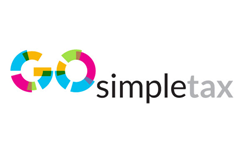
If you're a self-employed sole trader, partnership or limited company in the UK, you will need a Unique Taxpayer Reference (UTR) number. The number is unique to the individual or organisation and will never change.
You will also need a UTR if you have other forms of income or expenses that require you to file a self assessment tax return.
What is a Unique Taxpayer Reference (UTR)?
A UTR is a ten-digit reference number, also known as a tax reference. You will be sent a UTR automatically when:
- you register for self assessment
- you start a limited company
You will receive the UTR within 10-working days. Once you have your UTR, you will have to use it for all future correspondence with HMRC. Your UTR will help HMRC identify and process your tax returns against the correct taxpayer’s records.
Why would you need a Unique Taypayer Reference?
If you haven't got your UTR yet, you will be unable to submit your self assessment tax return. Obtaining a UTR can take a couple of weeks. If you don't apply in time, you run the risk of filing your tax return late and there are penalties that can be issued by HMRC for late filing and payment of any tax owed.
 New tax year – new you
New tax year – new you
You can file your self-assessment from the 6th April. Know your tax owed and start the tax year in control.
For self-employed individuals, sole traders, or those with non-PAYE income, GoSimpleTax provides direct self-assessment filing with HMRC, offering helpful hints and savings tips throughout the process. Let GoSimpleTax handle all calculations.
Who needs a Unique Taypayer Reference?
You will need a UTR if you need to complete a self assessment tax return. Individuals with self-employed income or income from rental property probably form the biggest group that will need a UTR. However, you will also need a UTR and to complete a self Assessment tax return if you
- are a sole trader earning more than £1,000
- are a partner in a business partnership
- have a total income over £100,000 or have complicated tax affairs
- have an income over £60,000 and either you or your partner receive child benefit
- get income from savings and investments or dividends over £10,000
- have property income over £10,000, or profits over £2,500
- need to pay capital gains tax on assets you have sold
- are a religious minister, Lloyd's underwriter, examiner or share fisherman
For other taxpayers, it may also be relevant when registering for the Construction Industry Scheme or working with an accountant.
It should be noted that the government have announced some changes to who will need to complete a self assessment tax return starting from the 2024/25 tax year.
How do I get a Unique Taypayer Reference?
You won't receive a UTR number unless you’re registered as either self employed or as starting a new business. You’ll need to do this on HMRC’s website. Alternatively, you can call them on 0300 200 3310. There is no charge for doing either.
Be careful if you have already started trading. HMRC expects you to register within three months of the end of your first month in business. You could be subject to heavy penalties if you fail to do so.
To avoid these fines, register as soon as you can. Make sure you have the following information to hand:
- full name
- date of birth
- email address
- home address
- phone number
- National Insurance number
- the date you started self-employment
Double-check that you have completed the process correctly if you do not receive your UTR within 10-working days following your registration.
What if I'm already registered for self assessment?
You should already have a UTR code somewhere. If you’ve misplaced it, start by checking any correspondence that you may have received from HMRC. All previous tax returns will reference it, along with any notices you may have had to file a return, payment reminders or statements of account. You can also find a lost UTR on the GOV.UK website.
In addition, your HMRC online account will also display your reference number, provided you can access it. If none of these options prove fruitful, contact the Self Assessment helpline.
You can watch this HMRC video for more information on how to find your UTR.
Written by Mike Parkes of GoSimpleTax - tax return software that can help you manage your self-assessment.


